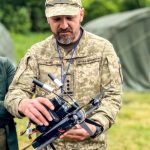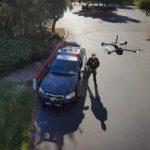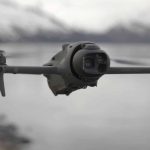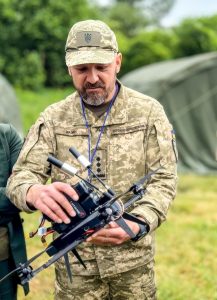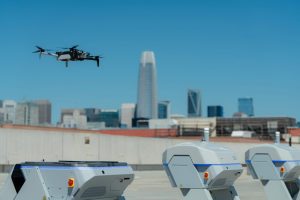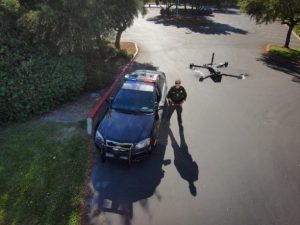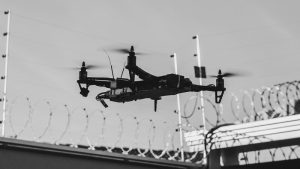Preparing Today’s Workforce for Tomorrow’s Drone Industry
The rapid advancement of the drone sector is reshaping the work landscape. Drones have evolved from futuristic curiosities into essential instruments across numerous fields—transforming agriculture, construction, public safety, logistics, environmental monitoring, filmmaking, real estate, and more. As their practical and economic influence expands, it raises a critical question: How do we equip today’s workforce for a future where drone technology permeates every corner?
1. The Drone Industry’s Tipping Point: Why Now?
The drone industry is experiencing a pivotal moment. Regulations are broadening to facilitate diverse drone operations, such as flights beyond visual line of sight (BVLOS) and autonomous missions, while the technology itself continuously adapts. Consequently, businesses are voraciously seeking employees equipped with an optimal mix of knowledge, qualifications, creativity, and flexibility to thrive in this dynamic environment.
Globally—from bustling cities to peaceful countrysides—drones are creating new job opportunities and transforming existing roles. On a modern farm, for instance, a single drone operator can capture crop health data in minutes, a task that once demanded a team of workers and days. Meanwhile, in the construction field, surveyors now utilize drones to develop highly accurate digital models swiftly and cost-effectively.
Fun fact: As per the FAA, almost 500,000 new drone pilots will be required within the next five years! This is not an exaggeration—with the burgeoning rise of AI, automation, and robotics, the demand for skilled and adaptable drone professionals will continue to soar.
2. The Expanding Career Landscape: What Jobs and Skills Are in Demand?
The traditional “drone pilot” role represents just a minor aspect of today’s drone workforce, which includes:
- Certified drone pilots for commercial operations and inspections
- Data analysts adept at interpreting geospatial, drone-sourced datasets
- Software developers creating AI-driven, autonomous flight systems
- Payload engineers and sensor integrators
- Maintenance and support specialists
- Compliance and safety experts adept with global regulation navigation
Looking ahead, drone careers will range from drone delivery logistics management and fleet operations to real-time AI analysis of aerial data, drone-based ecological studies, and crowd safety monitoring at major public gatherings.
Must-Have Skills (Today and Tomorrow):
Technical Skills:
- Remote piloting and flight planning (including Part 107 and other regional licenses)
- Advanced sensor operation (e.g., LiDAR, multispectral, thermal imaging)
- Data management: GIS, photogrammetry, and 3D mapping
- Comprehension of AI, machine learning, and automation in UAV systems
- Drone hardware maintenance and troubleshooting
Soft Skills:
- Quick adaptability and tech curiosity—what’s cutting-edge today could be obsolete tomorrow
- Cross-disciplinary collaboration (engineering, regulatory, field operations)
- Problem-solving under pressure
- Effective communication: translating technical findings into viable business insights
Expert tip: Want to distinguish yourself? Develop a portfolio demonstrating your talents—videos, mission reports, and data analyses from real-world flights can carry significant weight during interviews and project proposals.
3. The Training Pipeline: Redefining Workforce Development
“Flying a recreational drone in the backyard does not prepare you for inspecting a power line post-lightning storm—or controlling a city-wide fleet of autonomous delivery drones.” Industrial drone applications are high-stakes: errors can impose substantial financial losses, compromise safety, or lead to legal violations.
Current Challenges:
- Severe talent shortage: The demand vastly exceeds the supply of accredited, industry-ready drone professionals.
- Many initiatives focus excessively on basic flight skills, underemphasizing industry-specific necessities such as precision surveying, emergency response, or regulatory compliance.
- Access and equity: High training costs and insufficient awareness can exclude a variety of talents.
Effective Approaches: Emerging Initiatives
- Elevate Scholarship Program: Supported by DroneDeploy, Prime Air, FlyGuys, and government partners, this initiative removes financial barriers for young individuals (ages 16–24) to obtain certification, covering the $175 FAA Part 107 exam fee and offering hands-on career resources.
- FAA Collegiate Training Initiative (CTI): It collaborates directly with universities to align drone curricula with industry needs, offering students real-world flight experience and straightforward career paths.
- Drone Education Showcases: Programs such as the PIC Drone Education Program collaborate with local workforce boards and technical institutions, providing students with practical experience and real FAA Part 107 certification success.
Case study: During a 2025 showcase, 23 high school students were trained on drones, 12 participated in a precision flight challenge, and 9 passed the Part 107 exam—paving their path into commercial drone careers. Graduates collaborated with local enterprises to develop aerial marketing materials, demonstrating their immediate value to employers.
Trends in Training
Coursework is becoming deeply practical, incorporating drone kit assemblies, CAD-based drone design, real-world simulations, and project-centered learning. Emerging technologies, such as BVLOS operations, AI-augmented systems, autonomous fleets, and niche fields like pipeline inspection or environmental mapping, are now standard in advanced programs.
4. The Tech Frontier: AI, Autonomy, and Evolving Regulations
AI-powered drones are redefining the rules. While pilots once depended on acute manual controls, tomorrow’s workforce must master AI-assisted mission planning, object recognition, fleet management, and data analytics.
Regulations are rapidly evolving, especially with rising safety, privacy, and ethical considerations. Keeping skills and certifications current in areas like BVLOS, swarm operations, payload integration, and operational compliance is crucial.
Expert opinion: Future value comes from those who are tech-savvy and regulation-fluent: “The drone’s size or cost isn’t vital—capability to adapt and resolve genuine problems, ensuring safety, in this ever-evolving landscape is what counts.”
5. Bridging the Gap: Industry, Academia, and Individual Commitment
No single entity can single-handedly prepare tomorrow’s drone professionals—it necessitates collaboration across industries, educational institutions, and policymakers:
- Industry: Needs to clearly express which jobs are crucial, support authentic projects, and partake in curriculum development.
- Academia: Should provide hands-on, sector-specific drone experiences, not merely classroom theory.
- Government/regulators: Must simplify licensing, fund training programs, and offer scholarships to diversify the talent pool.
Companies investing in developer programs, apprenticeships, and collaborative opportunities observe benefits: accelerated onboarding, elevated retention rates, and innovative project results.
6. Unlocking Your Drone Career: Actionable Steps
Consider this your guide:
- Identify your interest: Is public safety, agriculture, filmmaking, delivery logistics, or environmental science your passion?
- Get certified: Pass the FAA Part 107 (or equivalent) as your initial step.
- Acquire experience: Engage in volunteer projects, participate in competitions, or intern within your preferred sector.
- Learn the tech: Exploit every opportunity to expand your knowledge on AI, automation, mapping, photogrammetry, and practical drone applications.
- Network and stay informed: Attend events (like XPONENTIAL), follow industry forums, seek mentorship, and embrace continuous learning.
- Seek support: Explore scholarships, complimentary training, and local drone education initiatives aimed at bridging the gap for newcomers.
One student’s journey: After participating in a high school drone program, Jessica excelled in her Part 107 exam, interned with a local surveying company, then joined a university research team utilizing AI drones for wetland conservation. Now, she contributes to developing training modules for first responders—her skills continually evolving.
7. The Human Side: Our Team, Our Stories
At the core of any drone revolution is a community. As drone educators, industry insiders, and technology enthusiasts, our team adheres to three principles:
- Teach for tomorrow: We consistently update our courses, as today’s innovations may become tomorrow’s standards.
- Mentorship matters: Behind every accomplished pilot is a mentor who believed in them—be it a teacher, leader, or friend.
- Celebrate diversity: Innovation is driven by diverse backgrounds, perspectives, and lived experiences.
Our initiatives have successfully paved the way for drone experts to establish environmental data companies, inspired students to transform their gaming interests into drone racing championships, and guided career-changers from aviation, IT, and even the arts into drone-driven futures.
Favorite meme: “Why did the drone get hired? Because it had outstanding elevation. 😄”
8. Looking Ahead: Your Future in the Drone Revolution
The next workforce isn’t just about piloting drones—it’s about innovation, construction, adaptation, and leadership within a world where drones are mere vehicles for far greater opportunities. Whether your interest lies in piloting, programming, data analysis, or advancing scientific and safety boundaries, there’s never been a more thrilling time to embark on a career in the drone industry.
Ready to commence your journey? Always remember: The future belongs to those who dare to fly and persistently learn.
Popular Keywords (SEO): drone workforce development, drone training programs, drone industry careers, drone jobs, Part 107 certification, BVLOS, drone pilot license, FPV drone, AI drone technology, drone education, drone applications in business, drone regulations, drone scholarships, autonomous UAV, how to become a commercial drone pilot, best drone courses, future of drones in work, workforce training for drones.
Resources for Further Exploration:
- Commercial UAV News: In-depth articles and guides on trends, jobs, and training
- FAA Drone Zone: US licensing, test prep, safety information
- AUVSI: Industry news, conferences, policy updates
- Local technical colleges and workforce boards: Ask about drone programs and scholarships
Advice from the field: The ultimate moment to begin preparing for a future drone career? Now. The second-best moment? Immediately. Seek mentors, maintain curiosity, and leave your imprint on this ascendant industry.
